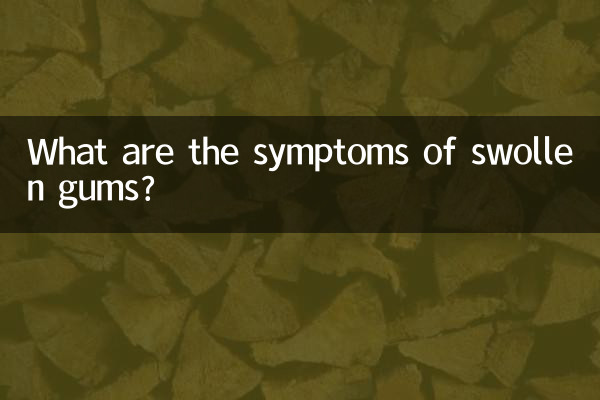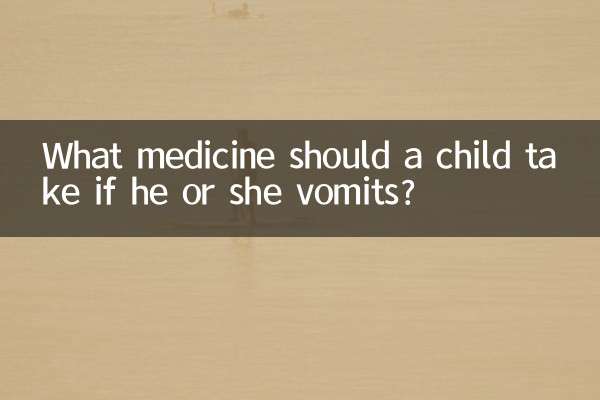What are the symptoms of swollen gums?
Gum swelling and pain is one of the common problems in the oral cavity, which may be caused by a variety of reasons, such as gingivitis, periodontitis, food impaction or systemic diseases. Understanding the symptoms of swollen gums can help identify the problem promptly and take appropriate measures. The following is a detailed analysis of the symptoms, causes and treatment methods of swollen gums.
1. Common symptoms of swollen gums

Swelling gums are usually accompanied by the following symptoms, which may vary depending on the cause:
| Symptoms | Description |
|---|---|
| Redness and swelling | The color of the gums becomes dark red or purple, and the gums swell locally or overall. |
| pain | Pain when touched or chewed, which may be constant or episodic. |
| Bleeding | It is easy to bleed when brushing your teeth or biting hard objects, or even spontaneous oozing. |
| Bad breath | Bad breath in the mouth due to bacterial growth or pus. |
| suppuration | In severe cases, pustules may form, accompanied by yellow discharge. |
| loose teeth | Long-term inflammation may lead to alveolar bone resorption and loose teeth. |
2. Common causes of swollen gums
There are many causes of gum swelling and pain, the following are the main triggers:
| Reason | Description |
|---|---|
| Gingivitis/Periodontitis | Plaque accumulation, which causes inflammation, is the most common cause. |
| Pericoronitis of wisdom teeth | Incomplete eruption of wisdom teeth leads to gum encrustation and bacterial infection. |
| food impaction | Food left between teeth irritates the gums and causes swelling. |
| systemic disease | Diabetes, leukemia, etc. may aggravate gum problems. |
| Hormone changes | Hormonal fluctuations during pregnancy or puberty can easily cause gum sensitivity. |
3. How to relieve gum swelling and pain?
For gum swelling and pain, the following measures can be taken to relieve symptoms:
| method | Specific operations |
|---|---|
| oral hygiene | Use a soft-bristled toothbrush and floss to clean between teeth. |
| Rinse with salt water | Rinse your mouth with warm salt water 3-4 times a day to reduce inflammation and inhibit bacteria. |
| cold compress | Apply ice packs to the swollen area for 10-15 minutes each time. |
| drug relief | Nonsteroidal anti-inflammatory drugs (such as ibuprofen) provide short-term pain relief. |
| Indications for medical treatment | If there is no relief, pus or fever persists for 3 days, you need to see a doctor in time. |
4. Key measures to prevent gum swelling
Prevention is better than cure, please pay attention to:
1.Regular dental check-ups: Teeth cleaning and professional examination at least 1-2 times a year.
2.Brush your teeth correctly: Use the Pasteurized brushing method, for at least 2 minutes each time.
3.diet modification: Reduce high-sugar foods and consume more vitamin C.
4.Quit smoking and limit alcohol: Tobacco and alcohol can aggravate gum inflammation.
5. Recent hot topics
Based on the hot topics on the Internet in the past 10 days, the following content is related to oral health:
1."Staying up late causes gum swelling and pain": Multiple social platforms have discussed that staying up late can lead to a decrease in immunity and increase the risk of oral problems.
2."Controversy over the use of dental rinsers": Some users report that improper use of the dental rinse may irritate the gums, so please follow the instructions.
3."Traditional Chinese Medicine to Treat Swollen Gums": Folk remedies such as boiling honeysuckle and dandelion in water and gargling the mouth have aroused heated discussion, but they need to be tried with caution.
If gum swelling and pain recurs, it is recommended to seek medical advice as soon as possible to identify the cause to avoid delaying treatment.

check the details

check the details